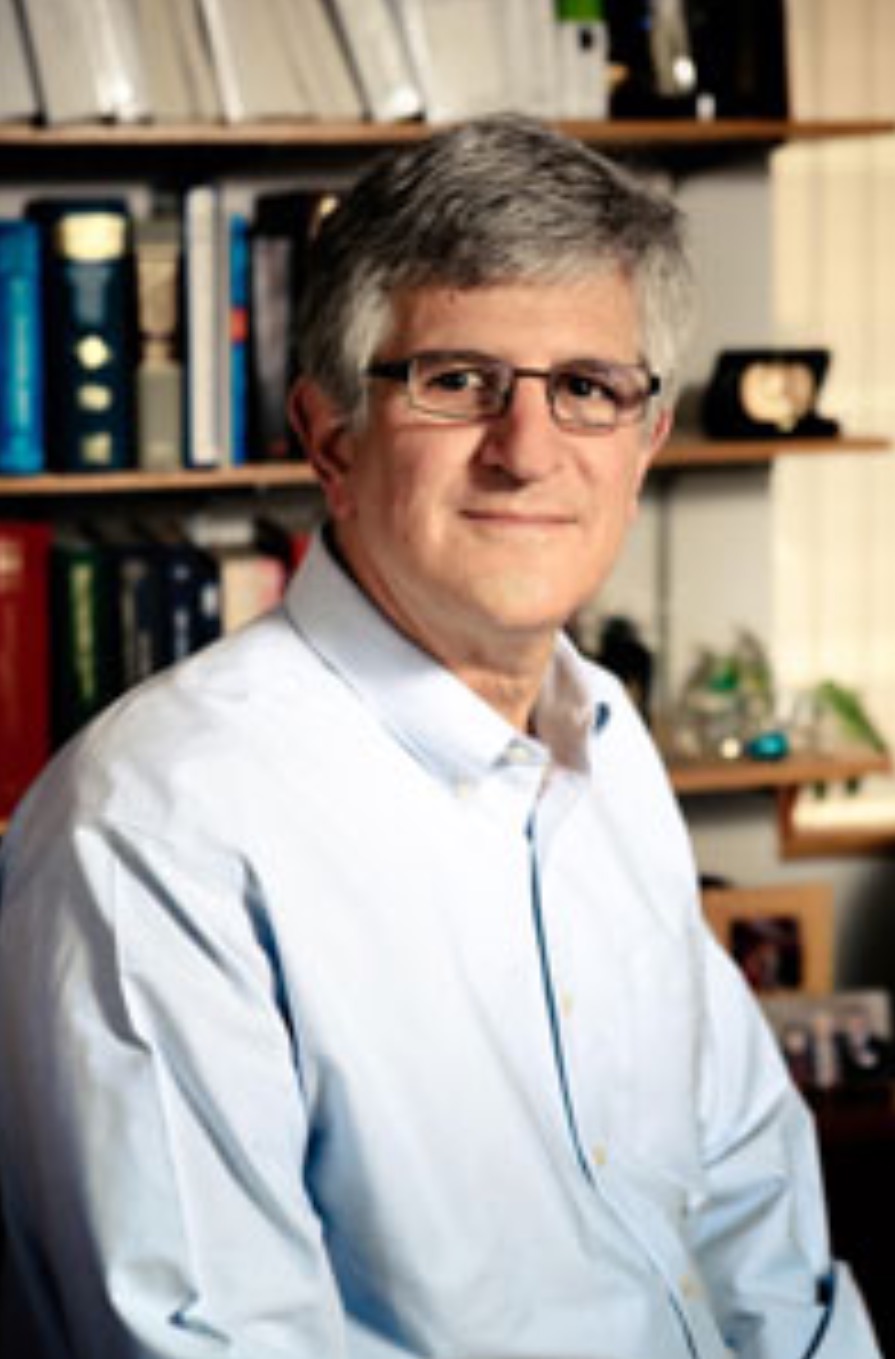When some of the public hears about vaccines today, they may think of Andrew Wakefield's fraudulent links to autism or Jenny McCarthy’s use of her Hollywood megaphone to polarize the issue as well as encourage the spread of an anti-vaccine movement.
Truth be told, for a time public opinion did shift and philosophical exemptions boomed, primarily in states like California, Washington, and Oregon. Preventable diseases blossomed.
As science stood largely silent, Dr. Paul Offit - Chief of Infectious Diseases and the Director of the Vaccine Education Center at Children’s Hospital of Philadelphia (CHOP) and long-time trustee and supporter of the American Council on Science and Health - took to the helm to fight the noble battle on behalf of children’s health and safety. He is an impassioned advocate for preventing diseases and inventor of the Rotavirus vaccine. His life’s work saves lives. (1)
I am honored to kick off my Dr. Wells’ Curbside Consult series by interviewing him. Return soon to view our video portion which ever expands the discussion.
How hard was it to develop the rotavirus vaccine?
Dr. Offit: We spent 10 years working with that virus trying to figure out what parts made you sick. What parts induced an immune response and protected you. Then, create a series of strains we thought could be a vaccine. Then, we had the research and development part where we had to figure out which strains needed to be there to prove that each strain needed to be there to prove that we didn't have too much or too little of each strain. We had to have the right buffering agent. The right stabilizing agent. We had to do real time stability studies to show that it was the right vial.
This was a 26 year effort ending in a large Phase III trial that was a prospective placebo controlled 70,000 infant plus 11 country 4 year roughly $350 million study to prove that the vaccine was exactly what we claimed it to be. I think what I learned in all that was how hard it was to make vaccines.
How did the myth of vaccines causing autism originate?
Dr. Offit: In the midst of all of this, in 1998, there was a paper published in a British medical journal called the Lancet which is a very well-respected general medical journal, claiming that the combination measles, mumps, rubella (MMR) vaccine caused autism. The lead author was a man named Andrew Wakefield who believed this to be true. Underline the word ‘believed’ because he certainly didn't prove it.
This was the collection of essentially 8 children who had autism within a month of receiving MMR. That was it. I mean you frankly could have published a paper claiming that peanut butter sandwiches caused leukemia because you had 8 children who recently for the first time in their life ate peanut butter sandwiches and then developed leukemia. You have to have a higher bar than that. But, nonetheless, it was published and created a firestorm.
What lessons did you learn from the perpetuation of that myth?
Dr. Offit: Thousands of parents of children in England chose not to vaccinate their children. As a consequence, hundreds of children were hospitalized with measles and four children died. Died of measles. Died of a vaccine preventable disease.
So, what that taught me was how easy it was to damn them. I think I learned how hard it was to make them and at the same time how easy it was to damn them. At the time, although I think pediatricians were stepping up about “vaccines are good and diseases are bad you need to get your kid vaccinated,” I didn’t see a lot of scientists sort of stepping up trying to explain why the science didn't make sense of what Andrew Wakefield was claiming.
So, seeing children die from a vaccine preventable disease got you into myth debunking?
Dr. Offit: So, without any training and probably stupidly, I decided to get in the game. It is the public that funds you and on some level I think you owe it to the public to weigh in on why what you are doing is important and needs to continue to be done.
With that, I ended up getting in the game and on a lot of morning and evening shows, the Today Show, Good Morning America, was on the Colbert Report a couple times. But, what I learned in all that was it is easier to make a vaccine than to shape public opinion about vaccine.
Why are scientists often ineffective communicators?
Dr. Offit: I learned that as a scientist your training in many ways is the opposite of what you need to do to be a successful communicator. Or, said another way, inoculating mice for 15 years in a concrete windowless room at the Wistar Institute was not training to be on the Colbert Report.
You are trained by the scientific method. You are a good scientist if you stick to your data —if your discussion section never goes beyond your data. But, that’s not what it takes to be a good communicator.
What made Andrew Wakefield’s house of cards crumble?
Dr. Offit: Andrew Wakefield was basically discredited, his paper retracted. There are 4000 papers published in the world’s medical and scientific literature per day. And, they follow —as you would expect — a bell shaped curve where some are excellent and others awful, most are more or less mediocre.
You really have to do something to get your paper retracted, and he did. Basically, his paper was fraudulent. He misrepresented clinical data. He said that some children started to develop symptoms of autism after given the vaccine when, in fact, they developed it before. He misrepresented biological data and he misrepresented that he received $800,000 from a personal injury lawyer. 5 of the 8 children were in the midst of suing pharmaceutical companies essentially laundering legal claims through a medical journal.
His paper was retracted, he lost his license to practice medicine in the United Kingdom, so he came to the US to live in Austin, TX to keep Austin weird.
Wakefield made a movie — Vaxxed — that was almost shown at the Tribeca Film Festival till pulled at the last minute. Thoughts on that?
Dr. Offit: It’s your basic conspiracy theory movie. What the government doesn't want you to know. That the government is hiding the fact vaccines really do cause autism ignoring the 17 studies that have been published showing they don’t. I think 10 years ago that movie would have gotten a lot more play. It probably cost millions of dollars to make—begging the question, where did he get the money to make it? It really was ignored by the media, so that is a good sign.
Are we winning in educating the public on vaccines?
Dr. Offit: I think there is evidence that we are winning. Mainstream media has gotten much better at covering the vaccine story. You don't really see the two sides being presented where frankly only one side is supported by the science. I think we have to some extent moved from balanced to perspective on this issue.
I think there are 3 reasons we are winning:
- The data have matured— we have 17 studies showing MMR doesn't cause autism.
- The Measles 2015 outbreak that started at Disneyland theme park spreading from Southern California to 25 states. 189 children - mostly children - then spread up into 2 Canadian provinces involving a few hundred more people. That got people’s attention because sadly as much as we try to educate about vaccines, nothing educates like the virus.
- This is going to sound counterintuitive, but I think Andrew Wakefield has actually been good for science. It’s not just that he was wrong. He was fraudulent and wrong. People don't like a fraud. I think the anti-vaccine movement hooked to his star and as he came crashing down, at some level, they came crashing down with him.
SOURCES:
(1) Dr. Paul Offit, Chief of Infectious Diseases and the Director of the Vaccine Education Center at Children’s Hospital of Philadelphia (CHOP)

Paul A. Offit, MD is the Chief of the Division of Infectious Diseases and the Director of the Vaccine Education Center at the Children’s Hospital of Philadelphia. In addition, Dr. Offit is the Maurice R. Hilleman Professor of Vaccinology and a Professor of Pediatrics at the University of Pennsylvania School of Medicine.
He is a recipient of many awards including the J. Edmund Bradley Prize for Excellence in Pediatrics from the University of Maryland Medical School, the Young Investigator Award in Vaccine Development from the Infectious Disease Society of America, and a Research Career Development Award from the National Institutes of Health. He has been a long-time member of the American Council on Science and Health, including serving as a Trustee.
Dr. Offit has published more than 140 papers in medical and scientific journals in the areas of rotavirus-specific immune responses and vaccine safety. He is also the co-inventor of the rotavirus vaccine, RotaTeq, recommended for universal use in infants by the CDC; for this achievement Dr. Offit received the Luigi Mastroianni and William Osler Awards from the University of Pennsylvania School of Medicine, the Charles Mérieux Award from the National Foundation for Infectious Diseases; and was honored by Bill and Melinda Gates during the launch of their Foundation’s Living Proof Project for global health.
In 2009, Dr. Offit received the President’s Certificate for Outstanding Service from the American Academy of Pediatrics. In 2011, Dr. Offit received the Humanitarian of the Year Award from the Biologics Industry Organization (BIO), the David E. Rogers Award from the American Association of Medical Colleges, the Odyssey Award from the Center for Medicine in the Public Interest, and was elected to the Institute of Medicine of the National Academy of Sciences. In 2012, Dr. Offit received the Distinguished Medical Achievement Award from the College of Physicians of Philadelphia and the Drexel Medicine Prize in Translational Medicine fro the Drexel University College of Medicine. In 2013, Dr. Offit received the Maxwell Finland award for Outstanding Scientific Achievement from the National Foundation for Infectious Diseases and the Distinguished Alumnus award from the University of Maryland School of Medicine.
Dr. Offit was a member of the Advisory Committee on Immunization Practices to the Centers for Disease Control and Prevention and is a founding advisory board member of the Autism Science Foundation and the Foundation for Vaccine Research. He is also the author of five medical narratives: The Cutter Incident: How America’s First Polio Vaccine Led to Today’s Growing Vaccine Crisis (Yale University Press, 2005), Vaccinated: One Man’s Quest to Defeat the World’s Deadliest Diseases (HarperCollins, 2007), for which he won an award from the American Medical Writers Association, Autism’s False Prophets: Bad Science, Risky Medicine, and the Search for a Cure (Columbia University Press, 2008), Deadly Choices: How the Anti-Vaccine Movement Threatens Us All (Basic Books, 2011), and Do You Believe in Magic?: The Sense and Nonsense of Alternative Medicine (HarperCollins, 2013).




